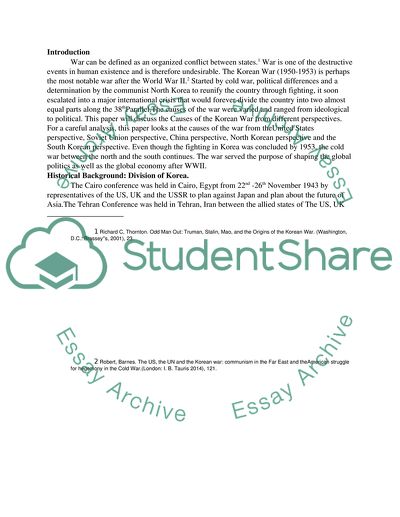Cite this document
(“Causes of the Korean War Essay Example | Topics and Well Written Essays - 4000 words”, n.d.)
Causes of the Korean War Essay Example | Topics and Well Written Essays - 4000 words. Retrieved from https://studentshare.org/history/1840955-what-caused-the-korean-war
Causes of the Korean War Essay Example | Topics and Well Written Essays - 4000 words. Retrieved from https://studentshare.org/history/1840955-what-caused-the-korean-war
(Causes of the Korean War Essay Example | Topics and Well Written Essays - 4000 Words)
Causes of the Korean War Essay Example | Topics and Well Written Essays - 4000 Words. https://studentshare.org/history/1840955-what-caused-the-korean-war.
Causes of the Korean War Essay Example | Topics and Well Written Essays - 4000 Words. https://studentshare.org/history/1840955-what-caused-the-korean-war.
“Causes of the Korean War Essay Example | Topics and Well Written Essays - 4000 Words”, n.d. https://studentshare.org/history/1840955-what-caused-the-korean-war.


